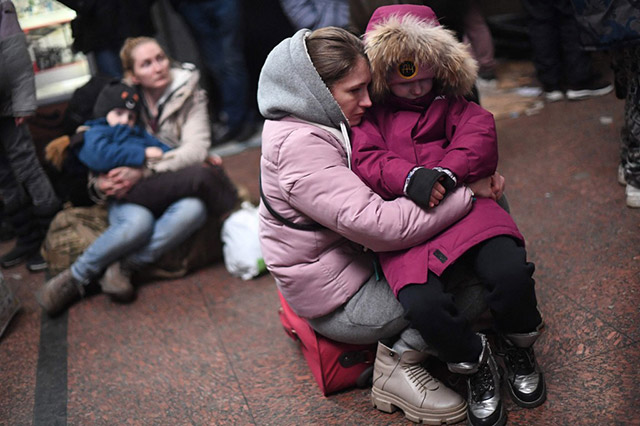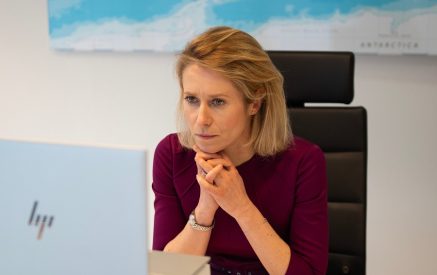Irina is a child psychologist working in a children’s home in Kherson, southern Ukraine. The home is a sanctuary for children whose parents have found themselves in difficult life circumstances and are unable to cope with parenting responsibilities; that have been abandoned; or whose parents’ parental rights are being taken away for legal reasons.
“We have 58 children in our care right now, from small babies of a few months up to the age of 4 years-old,” says Irina. “We also have a group of disabled children. My usual role is to help develop speech, attention and memory, but these days – like all my colleagues – we do all we can to help feed, clean and protect our children.”
“When the shelling started, we took the children down to the basement of the children’s home, but it was horrible down there,” says Irina. “We’ve since taken them to one of the churches, where they all are now.”
“Yesterday [March 1] was a terrible day for us. The shelling intensified and we heard gunshots. We are asking everyone, ‘Please let us leave the city and take the children to a safe place’.”
Read also
War can have a devastating effect on children’s mental and physical health, with potentially life-long consequences. That is why children must be protected from harm during conflict situations and never be targeted.
Since the onset of the military offensive in Ukraine, WHO has called to protect the right to health at any cost. This escalating violence, which is resulting in civilian deaths and injuries and is already taking a high mental health toll, including for children, is unacceptable. The protection of civilians must be priority number one and an obligation under international humanitarian and human rights law.





















































